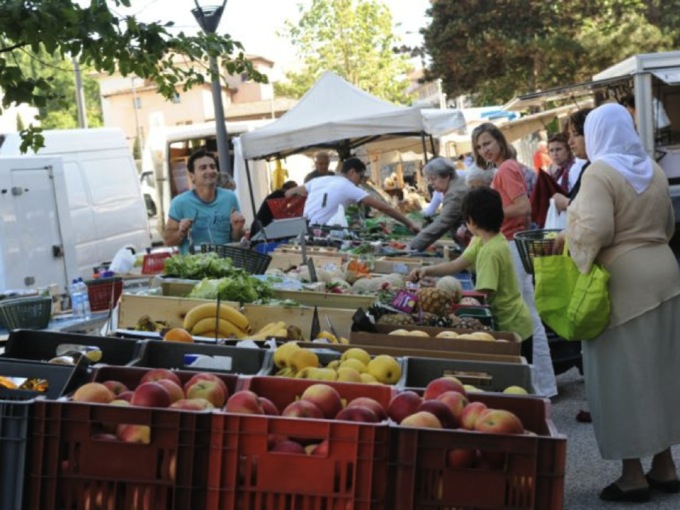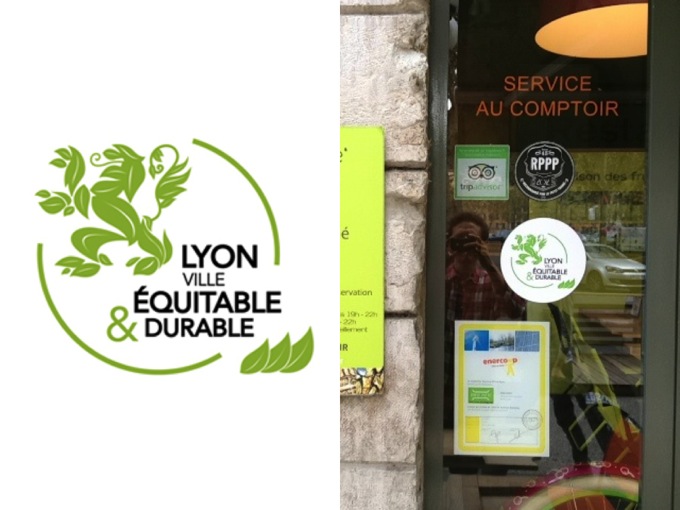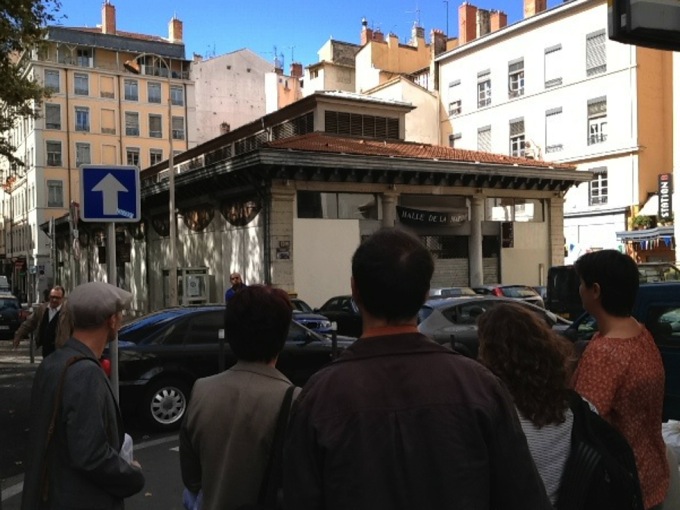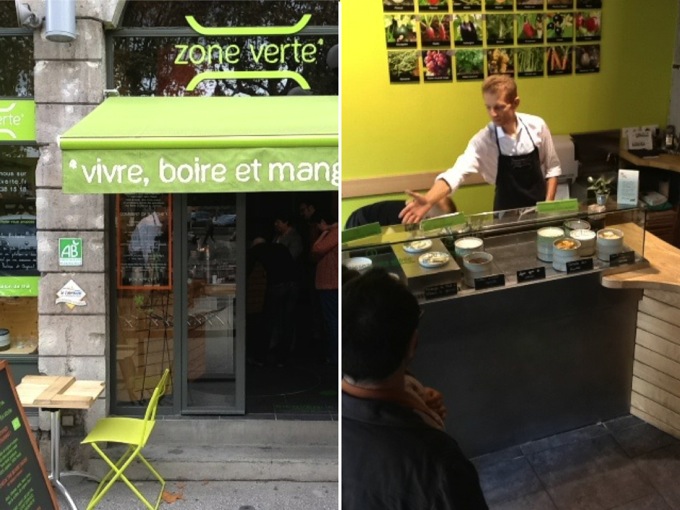Lyon / food and sustainability
The city of Lyon has great opportunities in implanting a sustainable food system thank to the dynamic associations’ life and potentialities of a preserved rural space surrounding the city.
Growing
Rhone-Alpes is a major agricultural production area in France. It’s also the first region for the part of organic production. It represents more than 5% of agricultural land in 2010 against 2.8% for national average rate. The “Beaujolais” is a well- known wine production area in the North of the city.
Food is mostly grown around the city in a range of 200km. Farmers from the peripheral area provide food to street markets. Currently and because of urban pressure phenomenon, only one farm still exists inside the city.
The tradition of “workers plots” has long been a characteristic of Lyon. It was a way for medium and low income households to grow their own food. Nowadays, there are stil semi-private allotments but most of the community plots are managed to become “collective gardens” that develop social ties.
Due to the shape of the old buildings, there is no tradition for rooftops gardening. New places to grow food could be located around buildings from the 70’s and 80’s, in spaces own by social living companies (private but strongly related to local authorities). In the more deprived areas where difficulties are stronger, social centres are using kitchen garden as a tool for integration.
| Pré Santy inclusion garden | The Pré Santy is a vegetable garden aiming first at improving social inclusion in a difficult social logging area in the South of Lyon. The gardening activities is at first more a pretext than an aim but it is constitutes an interesting cases promoting sustainable food among underprivileged population: the garden requires a reasonable piece of land but it is large enough to enable 20 families to experience eating vegetables they produce from time to time and to organize more than 20 neighbourhood events around self-grown food per years.Delivering
The national and international food production passes by the wholesale market of Rungis (Paris) before to come to Lyon by privates transport companies trucks. Supermarkets have their own delivery logistic.
As for local food, the production to sale is gathered to the local wholesale market nearby Lyon. Resellers buy there the products they will sale at the street markets while producers bring their own products. There are 65 well distributed markets in the city that animate street life and foster social ties. Markets are seen as a good way to reach people in their consumption habits.
| Street markets | The 65 streets markets in Lyon are an opportunity to talk about food issues: origine of products, quality and taste. On these occasions, young Chefs are invited to cook new recipes from vegetable they found on the market.About half of shops in Lyon are cafes, hotels or restaurants. The traditional name for restaurants is “le Bouchon Lyonnais”. The intention of municipality is to foster new behaviours for both consumers and retailers thank to the creation of the Lyon Fair and Sustainable City label.
| Lyon Fair and Sustainable City label | Lyon “Fair and responsible” was set up in 2010 in order to create a community of sustainable practices among the trade people in town. The label is characterised by transparency of selection criteria, progressive improvement process for those not yet eligible. The cooperation happens in club of exchange between entities awarded with the label. The aim is to labelled 400 business or associations toward 2014The strong will to change how food is perceived has also permitted to trust a producers’ consortium to animate one of the oldest market in town: the Halle La Martinière that is supposed to open in 2013.
| Halle La Martinière | The old original covered market “La Martinière” will soon be restored to become the healthy, fresh and local food market downtown. The consortium that was chosen is composed by producers’ cooperatives and proposes an original business model half way between low scale food purchase groups and large scale supermarkets.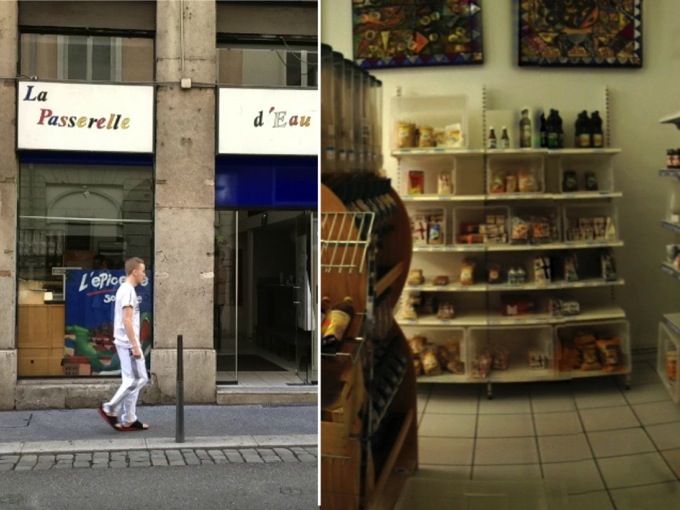 | Social and Solidarity grocery shop | The original grocery “La passerelle” is a social business that fosters a mix of the population working on two types of clients: ‘beneficiaries’ accessing mainly food charity stock and ‘solidarity clients’ attracted by organic food sold at fair but full market price to them. Both evolve in the same space the one providing better margin to the shop that are reinvested in giving to the other a discount on organic and fresh food.
| Social and Solidarity grocery shop | The original grocery “La passerelle” is a social business that fosters a mix of the population working on two types of clients: ‘beneficiaries’ accessing mainly food charity stock and ‘solidarity clients’ attracted by organic food sold at fair but full market price to them. Both evolve in the same space the one providing better margin to the shop that are reinvested in giving to the other a discount on organic and fresh food.
There are 5 social groceries in the territory that aim to support low income people with their food procurement in sensitive area. Innovative solutions to spread has been found in order not to create a new food gap between people that can afford quality food as organic products and those who would never think about it.
Enjoying
The city of Lyon has a long history of typical traditional French cooking, as warm meals with three dishes. Beside the fast food culture and short break for lunchtime, there is still a strong habit for lunch during about 1h30. Real engagement with food can be noticed and the participation in active international network called “Delice” offer the image of a dynamic and innovative city in matter of food. There are “great chiefs” that have opened restaurants and encourage progressively the development of a sustainable gastronomy culture. Also 4 restaurants in different ranges of prices, propose a choice of sustainable meals that are not always very well understood by the consumers. It seems that sustainable food restaurant is still reserved to a kind of population involved in sustainable issues.
| Zone Verte | “Zone verte” is an advanced model of restaurant using only fresh organic local food, with a Chef improvising from what is available from the associated farmers. The eco-integrated approach range from furniture design composed of wood table and trays to the educative approach of the owner. Nevertheless this advanced model experiences is lacking from clients as advanced as it is.
